Germany says Libya’s Haftar committed to ongoing truce, to participate in Berlin talks
Germany says Libya’s renegade general Khalifa Haftar, commander of the east-based army, has agreed to abide by an ongoing ceasefire with the internationally-recognized government of Prime Minister Fayez al-Sarraj, known as the GNA, following a nine-month-old war.
German Foreign Minister Heiko Maas announced the news on Thursday, saying during a visit to the North African country Haftar promised not to break the existing temporary truce between the two warring sides which took effect on Sunday.
“During my visit to Libya today, General Haftar made clear: He wants to contribute to the success of the Libyan conference in Berlin and is in principle ready to participate in it. He has agreed to abide by the ongoing ceasefire,” the German top diplomat tweeted after talks in the eastern Libyan city of Benghazi.
Mass had traveled to Libya to persuade Haftar to join in the upcoming peace initiative in Berlin, three days after the Libyan commander left the Russian capital Moscow without signing a permanent truce agreement expected to put an end to a persisting war in and around Libya’s capital Tripoli.
The Moscow peace talks were mediated by Russia and Turkey.
Since 2014, Libya has been divided between two rival camps: one based in the eastern city of Tobruk, and the other, the UN-recognized GNA, based in Tripoli.
Haftar is the self-proclaimed commander of an array of militia groups, collectively known as the so-called Libyan National Army (LNA), and is apparently supporting the eastern government.
The LNA launched an offensive to capture Tripoli in April last year, interrupting peace negotiations underway at the time. Despite intense and deadly clashes between the two sides, Haftar has so far failed to achieve his objective and his offensive stalled outside Tripoli.
In a declared attempt to restore peace in Libya, Turkey and Russia mediated peace talks between Sarraj and Haftar, who spent about eight hours of indirect talks in Moscow on Monday, but the talks ended at an impasse, after Haftar failed to come to terms with Serraj, sparking fears about the shaky ceasefire.
However, Haftar’s agreement to observe the existing ceasefire and his pledge to participate in Berlin talks are considered as an apparent advance for efforts to end a near-decade of turmoil in Libya.
Separately in Tripoli, Sarraj also expressed his readiness to attend the Berlin talks, which will be held under the auspices of the UN.
On Wednesday, UN Secretary General Antonio Guterres urged the two sides to stop fighting and “engage constructively towards that end, including within the Berlin process.”
Figures show that since April, clashes between the two sides have left more than 280 civilians and 2,000 fighters dead. They have also displaced tens of thousands of people.
Turkey supports the GNA and has sent troops to the North African country to help Sarraj’s government defend itself against Haftar’s attacks. The deployment, which has further complicated the situation, came after Ankara and the GNA reached a military agreement recently, angering Haftar.
Libya plunged into chaos in 2011, when a popular uprising and a NATO intervention led to the ouster of long-time dictator Muammar Gaddafi and his execution by unruly fighters.
Sarraj’s government has been attempting to establish order ever since.
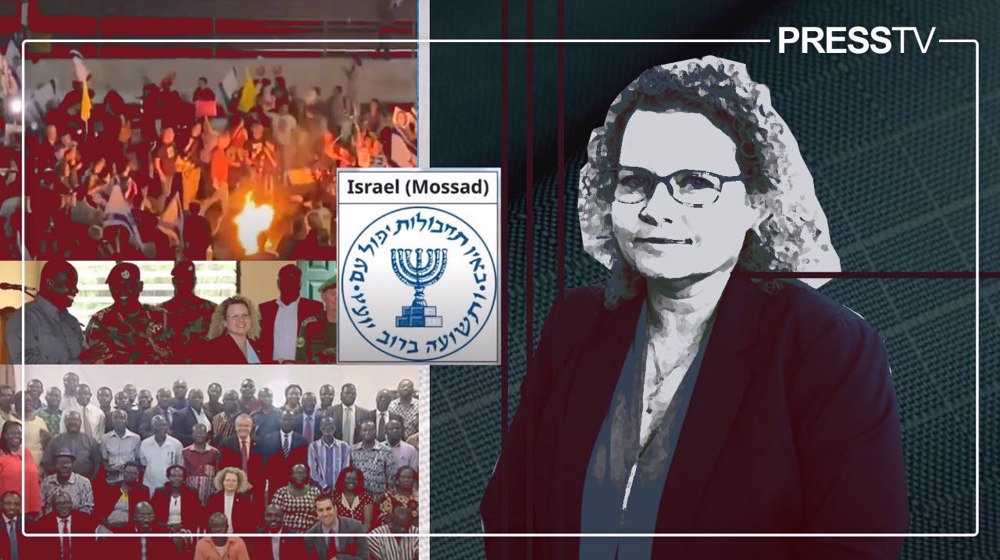
Exposed: Shani Cooper, Israeli spy who masqueraded as a diplomat in Africa
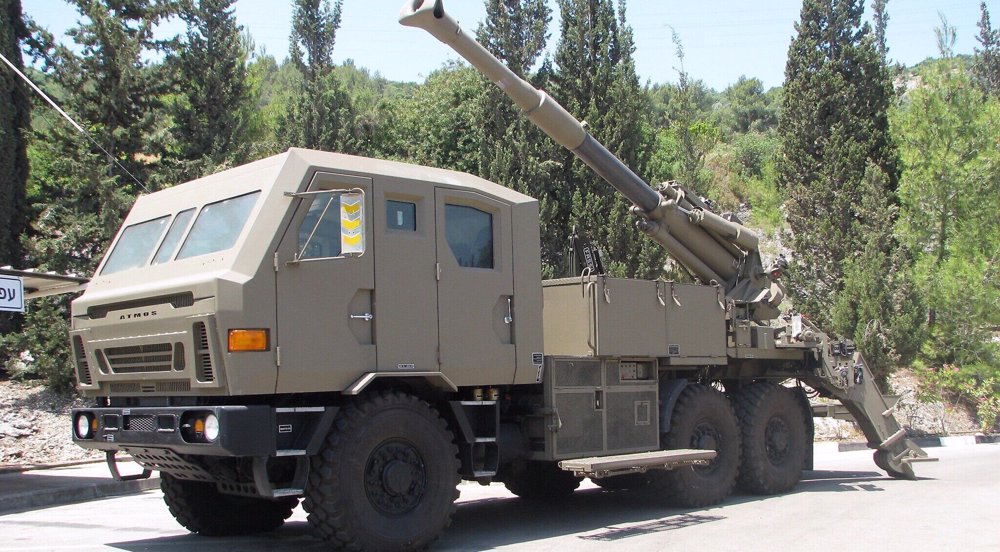
Morocco signs deal with notorious Israel’s Elbit to buy ‘battle-tested’ arms: Report

Protests in Morocco as US-flagged ship carrying arms to Tel Aviv docks at Tangier
VIDEO | Footage reveals aid workers killed in Gaza under Israeli fire, debunking regime’s claims
Autopsy finds teenage Palestinian died of starvation in Israeli prison
Year of Investment in Production in Iran
Israel’s brutality in Gaza ‘surpasses all recent forms of terrorism’: Rights group
VIDEO | Press TV's News Headlines
Myanmar quake death toll passes 3,300: State media
US spent $1 billion on Yemen offensive with limited results: Report
Microsoft employees disrupt 50th anniversary event over AI-assisted Gaza genocide






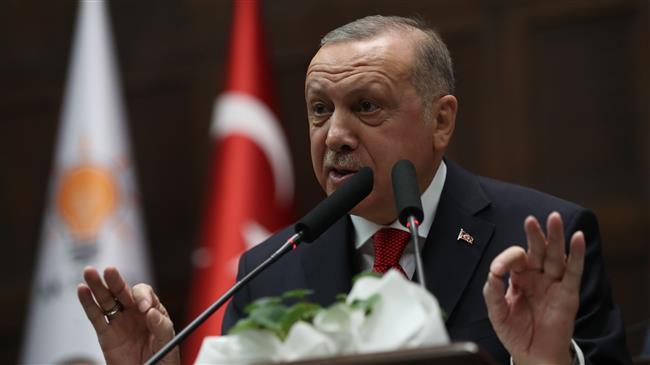
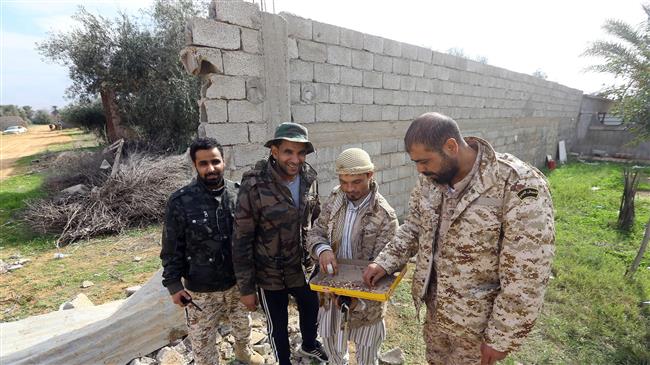
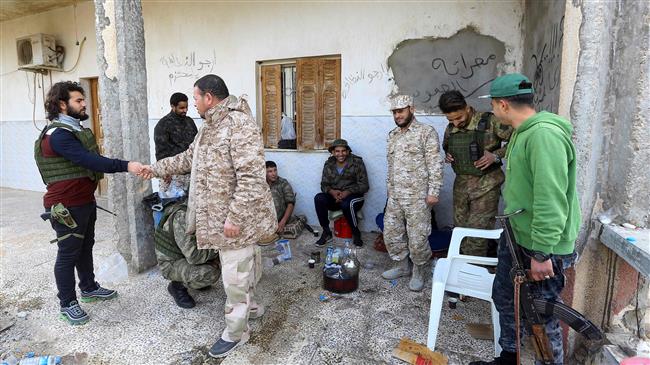
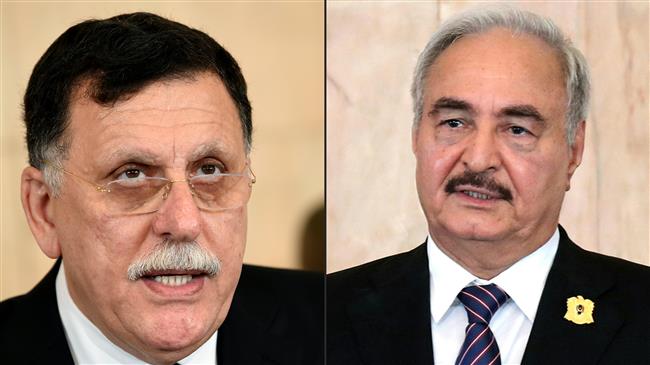

 This makes it easy to access the Press TV website
This makes it easy to access the Press TV website